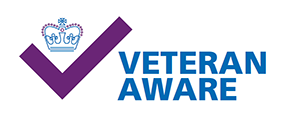Whiston Perinatal Pelvic Health Service (PPHS)
The Perinatal Pelvic Health Service (PPHS) is part of a Cheshire and Merseyside 'Improving Me' programme which aims to enhance access to perinatal pelvic health services, providing education and treatment to help optimise your pelvic health.
During your pregnancy and postnatal period, you may experience symptoms of pelvic floor dysfunction such as pain, incontinence or prolapse. This page provides some additional information and links to useful resources to help you improve your pelvic health.
You can be seen throughout pregnancy and up to 18 months postnatal.
Please note: This page and referral form is specifically for patients within the Whiston, St Helens, Knowsley, Widnes and Halton area and are delivering at Whiston Hospital or at home. MWL Southport and Ormskirk have a separate service and referral form.
- Meet the Team
We have a team approach with dedicated staff to provide advice and support through 1:1 clinics and various classes.
- Rachel Cox - Specialist Perinatal Pelvic Health Physiotherapist
- Alesha Maguire - Specialist Perinatal Pelvic Health Midwife
- Dr James Thomas - Lead Pelvic Health Obstetrician
- Wider Pelvic Health Physiotherapy and Midwifery team
- Antenatal Pelvic Health Issues
Signs & Symptoms
- Pregnancy-related Pelvic Girdle Pain (PGP) and/or pregnancy-related Low Back Pain
- Urinary Incontinence (leaking of urine)
- Bowel Incontinence (leaking of wind or poo)
- Existing Pelvic Organ Prolapse
- Painful sex or pain with vaginal internal examination (Vaginismus)
- Painful perineum
- Previous 3rd or 4th degree perineal tear/OASI
- Female Genital Mutilation (FGM)
Ask your GP/Midwife to refer you to the Perinatal Pelvic Health Service (PPHS) or complete the self-referral form online.
- Postnatal Pelvic Health Issues
Signs & Symptoms
- Urinary Incontinence (involuntary leakage of urine)
- Bowel Incontinence (involuntary leakage of wind or poo)
- 3rd or 4th degree tear/OASI
- Perineal wound breakdown/haematoma (bruising)
- Post natal Pelvic Organ Prolapse
- Tummy muscle separation (rectus abdominis diastasis) (3 months beyond delivery)
- Perineal wound infection
- Postnatal painful intercourse/internal examination (Vaginismus/ Dyspareunia)
- Bladder retention
- Chronic pelvic pain
- Pregnancy-related Pelvic Girdle Pain (3 months beyond delivery)
- Sexual dysfunction/pain during sex (including pain associated with female genital mutilation)
Ask your GP/Midwife/Health Visitor to refer you to the Perinatal Pelvic Health Service (PPHS) or complete the self-referral form online.
- Pelvic Floor Dysfunction
Signs & Symptoms
- Urinary Incontinence (involuntary leakage or urine)
- Bowel Incontinence (involuntary leakage of wind or poo)
- Pelvic Organ Prolapse
- Painful sex
- Pelvic Pain
Ask your GP/Midwife/Health Visitor to refer you to the Perinatal Pelvic Health Service (PPHS) or complete the self-referral form online.
- Referrals
Once the team receive your referral it will be triaged, and we will either arrange a 1:1 appointment or group education class for you to attend.
We aim to provide you with advice and support on managing your symptoms with personalised exercises and treatments.
- Self Referral
Have you experienced any of the symptoms below?
- Loss of feeling/pins and needles in thighs/genitals when you wash or wipe
- Loss of feeling/pins and needles below waits and down both legs
- Pain/weakness in BOTH legs
- Change of bladder control/unable to pass urine/loss of sensation when passing urine
- Change in bowel control/ loss of sensation when passing stool/ leakage from bowels
- Loss of sensation with sex?
If you have answered YES to any of the above questions, please seek immediate medical attention by calling 111, visiting 111 online, or attending your local A&E.
- Classes
Pelvic Girdle Pain Class
Location: Parentcraft Room, Level 2, Whiston Hospital
When: Mondays, 1.15pm to 2.15pm
To book, refer yourself online or ask a midwife to refer you.Pelvic Health Antenatal Education Class
Location: Online via Attend Anywhere
When: Tuesdays 5.00pm to 6.00pm
To book, please call 0151 430 1878.
- Further resources
Videos
- All Perinatal Pelvic Health videos
- Pelvic floor exercises during and after pregnancy
- Bladder and vaginal problems during and after pregnancy
- Back and pelvic pain during pregnancy
- Exercise during pregnancy
- Constipation during and after pregnancy
- When to start and how to do perineal massage (from 35 weeks)
- Posture and positioning during pregnancy and following the birth
- Perineal Massage (Recommend perineal massage from 35 weeks gestation. Can be beneficial in reducing risk of perineal tearing in labour.)
- When to start and how to do perineal massage
- After birth week 1 – bladder care
- After birth week 1 – pain management and wound care
- After birth – your stomach muscles
- After birth – return to exercise
Documents
- Booklets | POGP
- Third- and Fourth-degree Perineal Tears, Management (Green-top Guideline No. 29) | RCOG
- Perineal tears and episiotomies in childbirth | RCOG
Websites






